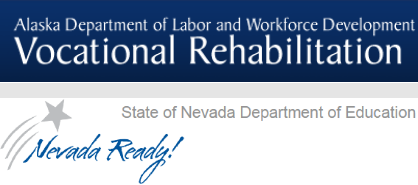Note: October is National Disability Employment Awareness Month
OSERS funds the National Technical Assistance Center on Transition (NTACT), a technical assistance center that connects the work of local education agencies, state education agencies, state vocational rehabilitation (VR) agencies, and VR service providers. NTACT provides support to these entities in implementing practices ensuring students with disabilities graduate prepared for success in postsecondary education and employment. We invite you to read more about the work of NTACT on their website. In recognition of National Disability Employment Awareness Month, this post highlights successes across the country, made possible by NTACT’s activities related to transition planning, graduation, post-school success, and data analysis and use. It also highlights critical resources developed by the center. Follow more activities from NTACT by searching the #transitionta and #NDEAM hashtags on social media.
Arkansas
Arkansas’ core leadership team for its intensive technical assistance (TA) work with NTACT includes partners from education, VR, career technical education, and blind services. They are implementing the Communicating Interagency Relationships and Collaborative Linkages for Exceptional Students (CIRCLES) model of interagency collaboration in two school districts this year. Through these efforts, students and their families will be connected efficiently to services, transportation, work-based learning experiences, postsecondary education, and jobs!
Alaska
Alaska’s Interagency Transition Council (AITC)—a product of the state’s TA partnership with NTACT—has supported four times the number of Transition Camps, hosted by Alaska’s state VR agency, Tribal VR, and local education agencies this year. Transition Camps provide three full days of career development and work readiness activities, and focus on entrepreneurship and subsistence living, as well as more traditional employment opportunities. The AITC is also engaged in a summer work program, through which 166 students completed more than 6 weeks of summer employment. Additionally, half of students supported in internships through state VR have achieved full or part-time competitive employment—one participant in this program achieved their GED and five are currently enrolled in postsecondary education. Finally, the Tribal VR agency in Nome, Alaska supported an enterprise to provide students work-based learning experiences while in high school.
Nevada
Nevada’s VR Bureau and Department of Education have partnered to develop interagency agreements at the local level and to host cross-agency professional development activities. These steps are part of their overall efforts to increase the number of students with disabilities accessing pre-employment transition services (Pre-ETS), intended to greatly improve integrated employment outcomes. Since initiating these efforts, the state has recorded a 69% increase in the number students engaged in these services, which prepare them for competitive integrated employment. They had set out to increase this number to 600 students by June 30, 2017, a goal which they have far exceeded. Currently there are around 883 students in the state receiving Pre-ETS!
North Dakota
NTACT has assisted North Dakota’s education and VR agencies to develop a training guide for job coaches. One large and three rural districts will participate in this professional development opportunity, intended to increase the number of students receiving quality job coaching and workplace readiness skills, thus preparing them for competitive integrated employment.
Resources from NTACT





